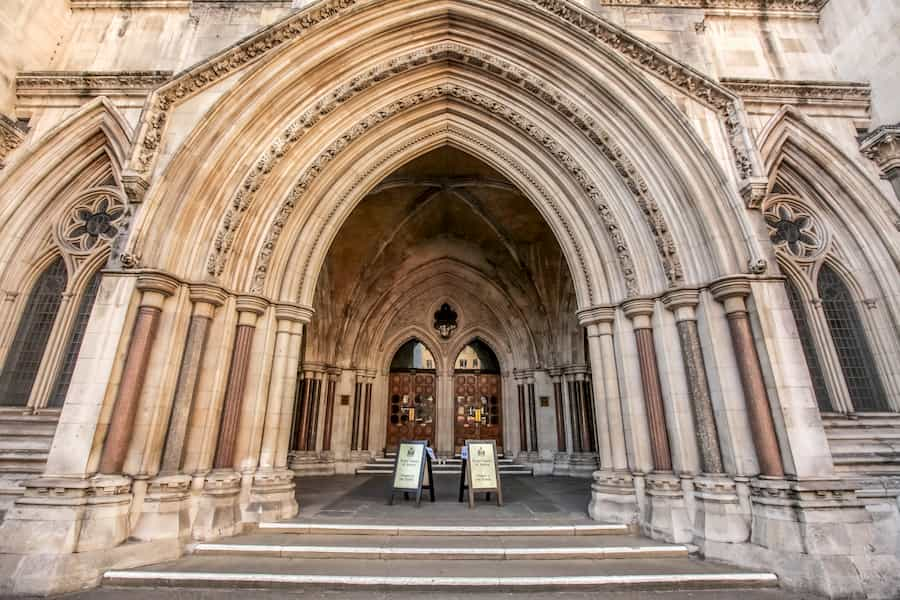A daughter who challenged her late father’s Will after her terminally ill stepmother disinherited her has lost a High Court battle.
Carly Shapton, brought the case against her father’s (Colin Seviour) estate and terminally ill stepmother, Maria Seviour, after the entirety of her father’s estate, worth around £268,000, was left to his late wife.
Following the death of Colin Seviour to brain cancer in 2016, the blended family had argued over a number of issues including Mr Seviour’s funeral arrangements. Given the state of the fractious relationship and declining health following a diagnosis of motor neurone disease in 2018, Maria Seviour made the decision to disinherit her stepchildren.
The Court heard that Colin Seviour was advised of his options to leave his estate in Trust in order to protect inheritance for his children. As they were financially stable, he made the decision to leave the estate to his wife who was an NHS worker on a relatively low wage before she was unable to work in the months after his death and her diagnosis.
Whilst the pair had intended to leave the estate to their four children, the perceived abhorrent behaviour from her stepchildren and an obviously ‘toxic relationship’ prompted Ms Seviour to change her Will, omitting her stepchildren.
However, citing the Inheritance (Provision for Family and Dependants) Act 1975, Ms Shapton claimed she needed some of the proceeds of her father’s estate to help fund a larger home purchase so her two children were able to have a bedroom of their own and her partner was able to have office space.
In total, Mrs Shapton applied to be granted £75,000 of the £268,000 estate.
The claim became disingenuous and the case deemed ‘hopeless’ when it was revealed that the family were able to afford regular affluent skiing and foreign holidays, had a company car and brought home a healthy combined income.
Judge Lloyd dismissed the maintenance claim because it was ‘perfectly clear’ that the family were able to afford ‘several very luxurious holidays’ and had ‘a high combined income, which is more than adequate to meet their day-to-day needs.’
Because the Shapton family are able to provide for themselves there was no claim under the 1975 Act meaning Ms Seviour’s amended Will was valid.
Judge Lloyd found that Mrs Shaton:
“was motivated by the view that she was entitled as of right to one quarter of her father’s estate.”
“She clearly is not. The will is quite clear: Maria, having survived her husband, takes the estate outright. I understand that Maria has changed her will. That is her prerogative.”
Following the claim’s dismissal, Ms Shapton was ordered to pay legal fees in excess of £50,000.




















One Response
I am the retired solicitor who acted (pro bono) for Mrs Seviour as her McKenzie Friend.
I note that comment that Mrs Seviour’s will remained valid. As will be appreciated, that was actually never in issue. The sole question for determination was whether the absence of any provision for Mrs Shapton was reasonable provision under the 1975 Act. The court (Deputy Master Lloyd) noting that “no provision may be reasonable provision”, held that it was. The claim pursued by Mrs Shapton (initially her brother, Chris Seviour, an associate at Mrs Shapton’s solicitors, Douglas-Jones Mercer, also threatened to make a claim) not only failed, but was found to be “absolutely hopeless”. In his judgment on costs the judge said that had he sent the costs for assessment instead of summarily assessing them, he would have ordered assessment on an indemnity basis and a substantial interim payment because “the application never stood a reasonable prospect of success”.
The case should serve as a warning to would-be claimants not to assume that just because a case is threatened, and in due course commenced, will every defendant succumb to the pressure of litigation and make some payment to settle. It also demonstrates that the courts will not hesitate to give robust judgments in cases such as this which frankly should never have been started.